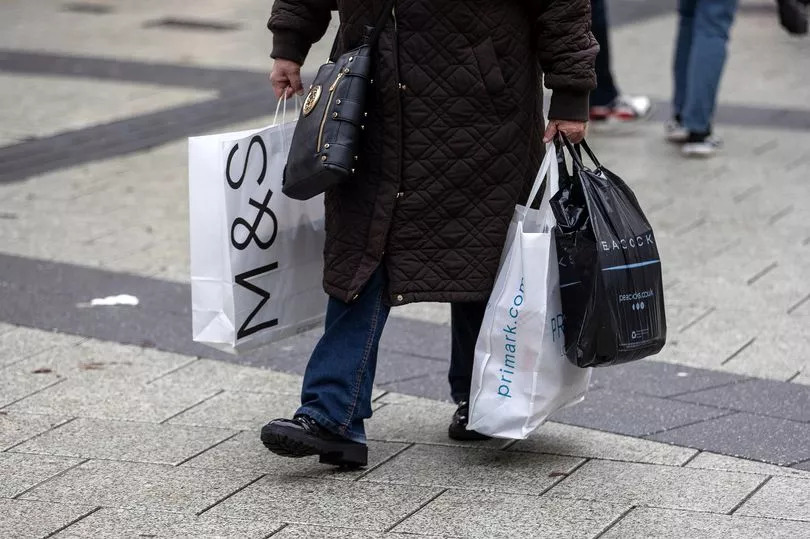
Scamming is everywhere, but especially this Christmas with numerous attacks being made on shoppers online. A new study by NatWest has revealed 41% of British adults will face an increase in scam approaches during the November and December period. In 2023, a record of £85.9 million was stolen by criminals in 156,516 purchase scams last year.
NatWest emphasised that 97% of these crimes happened online, a 34% increase in crimes compared to 2022. They also found 31% of adults are anxious that they will fall victim to scams when buying presents online. For the latest Cardiff news, sign up to our newsletter here.
A quarter of British adults (25%) reported to have encounter an advert that they believed to be genuine on fake websites or digital marketplaces such as Facebook listing presents that they could buy for the holiday season.
READ MORE: Christmas festival event cancelled because of virus outbreak
READ MORE: Two ingredients help keep condensation and mould ‘away for good’ on windows
NatWest has set out a scam protection calendar called Scamvent including delectable chocolates representing each one of the purchase scams that customers may face. The bank shared the main scams that customers should look out for when shopping this Christmas:
Phones
Phones are the most common scam. Scammers advertise high-demand smartphones at attractive prices. However, once paid for victims may recieve counterfeit or stolen goods.
Tickets and gift cards
Ticket scams, are a key point for fraudsters to scam people out of money, often through selling fake or invalid tickets or gift vouchers that cannot be redeemed. Natwest say that these are most common through social media ads, email offers or fake websites. Most often you may encounter resellers or fake Facebook groups that seem legitimate.
Laptops and tablets
Adverts on social media or even legitimate third party retailers such as Amazon offer promotions to cut-price points on laptops from well-known bands. The bank emphasised that ads directed interest through references to clearance sales or fake registration sites that steal personal details and payment card information.
Clothing and Luxury
Fake online stores or social media brands sale branded or designer clothing or luxury handbags and shoes or trainers at low prices. These are often knock-offs or nothing at all.
Home tech appliances
The urgency for a new microwave or vacuum cleaner for the new year, will likely result in customers being scammed out of money with large financial losses. Scammers target through phishing schemes or misleading ads sometimes only delivering the box and not the item itself.
Video games
Highly sought after video games, especially after newly released titles may claim to have rare-editions or discounted prices. Costumers are likely to receive counterfeits.
Cars and other vehicles
Scammers pose as car dealerships or sellers directing customers to purchase ampervans, cars and other vehicles. Fraudster may use excuses such as pre-payments or offer doctored vehicle history reports to get buyers to pay upfront deposits or full payments with no vehicle ever delivered at all.
Stuart Skinner, NatWest Fraud Expert, said: “You have to be careful when buying online because you can’t always be sure what you’re getting. Take a few minutes to go through our top tips or visit our security Centre for more shopping guides. That could make all the difference between having a happy and safe experience, or you or your loved ones going through the heartache of losing money to criminals this season.”
BBC Radio Wales delivered a series of scam-safe roadshows giving advice and key identifiers to consumers to spot scams. You can read about all Cardiff’s Christmas events and key dates here.
Finalist Wilfred Webster from BBC’s The Traitors, said: “Take a step back, don’t let the urgency especially for tickets get you. Take a look, and have a proper read through. Also use a credit card, that is the best thing that you can do, because you can always get your money back.”
Other experts from the scam safe team said to: “Dial 159, they’re a dedicated team that will help you identify if any payments that you made or are about to make could be a scam.
“Locking down your social media settings and checking that your accounts are set to private. Check what type of information that you’re sharing, and avoid using the same password for every account. So if possible, use different strong passwords and check NCSC advice on passwords.”
“If you want to go on to an online account, never click through a link in an email or a text, always go through the normal way that you would through a browser because often these are phishing emails where scammers can see what you’re looking into and change your details. If an investment finds you, it is far more likely to be a scam; it is their advantage and not yours.”
EMEA Tribune is not involved in this news article, it is taken from our partners and or from the News Agencies. Copyright and Credit go to the News Agencies, email news@emeatribune.com Follow our WhatsApp verified Channel



